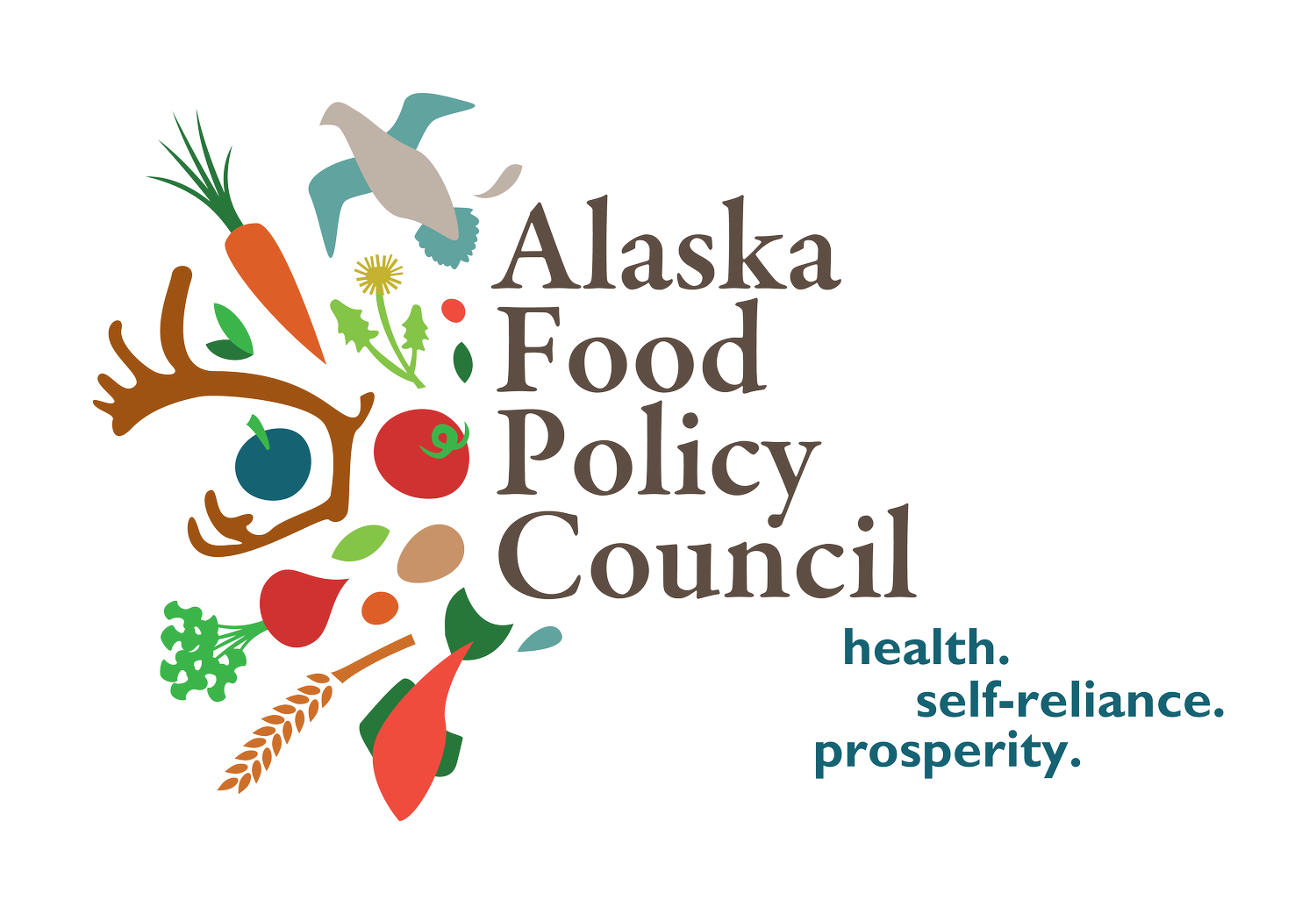AFPC's Voice: Shaping Tomorrow's Federal Nutrition Programs in Alaska
by Rachel Lord, AFPC Advocacy & Policy Director
In early-October, AFPC provided comments on substantial proposed rule changes within several of the USDA's Federal Nutrition Programs:
The Temporary Emergency Food Assistance Program (TEFAP)
The Commodity Supplemental Food Program (CSFP, Senior food boxes)
The Food Distribution Program on Indian Reservations Program (FDPIR)
These programs ensure food security, reduce hunger and promote nutrition education among vulnerable populations. The past two years have revealed more clearly than ever a tremendous amount of insecurity within our Alaskan food system. Shipping delays, food waste, increased hunger, increased demand on our food banks, and insufficient local production to feed our people are just a handful of issues exponentially felt during this time. In 2022, nearly 98,000 Alaskans received SNAP (food stamp program) benefits, 223 Alaskans received FDPIR benefits, 2,446 Alaskans received CSFP benefits, and TEFAP total food costs were almost $2.4 million.
At the Alaska Food Policy Council, we know how vital these programs are and believe in your voices' power. Through our active engagement, we've made it our mission to amplify your concerns and ideas. The proposed changes are not just about tweaking policies but about creating a more accessible, inclusive, and equitable food system for all Alaskans. The federal comment process is more than just bureaucratic paperwork; it's a chance for us to shape the future of how these nutrition programs work with and for our communities and make sure the rules reflect the reality on the ground in Alaska and our Tribal communities. These programs, designed with great intentions, often encounter hurdles along the way. Institutional biases and administrative complexities can obscure the original goals. However, these proposed rule changes present a unique opportunity. They allow us to help untangle the knots, ensuring that the benefits of these programs reach everyone who needs them.
We learned from our national Indigenous partners at the Indigenous Food & Agriculture Initiative (IFAI) where the proposed changes centered the voices of Tribal organizations and where continued changes were needed. Our comments echoed theirs, calling for more flexibility and responsiveness to Tribal needs and applauding the changes in response to feedback from Tribal leaders. We also listened to our national Feeding America partners, who focused on TEFAP and CSFP changes that would help increase access and decrease barriers to food banks and those in need accessing food. State agency partners shared concerns about increasing administrative requirements without additional funding amid already limited capacity.
AFPC’s comments represented a collective effort to navigate the challenges within TEFAP, CSFP, and FDPIR. Together, we've emphasized the critical importance of fostering flexibility, increasing access, and reducing barriers, especially for Tribal organizations and communities facing food insecurities. By echoing the voices of our national partners and addressing the pressing issues, we've taken a significant step toward creating a more responsive, inclusive, and equitable food system. The hurdles we faced in the past two years have only reinforced the urgency of our mission, highlighting the need for adaptable, community-focused solutions. As we move forward, let's stay united in our commitment to nourish our communities, empower our voices, and build a stronger, more resilient Alaskan food system for all.
You can read our full comments here.





